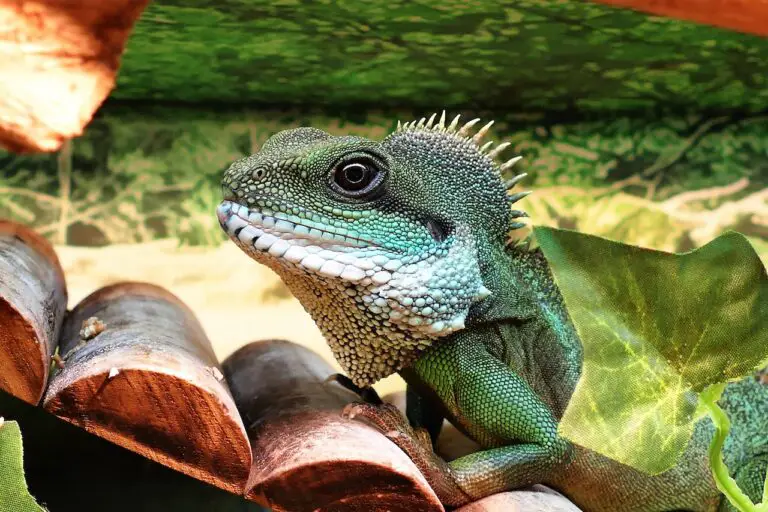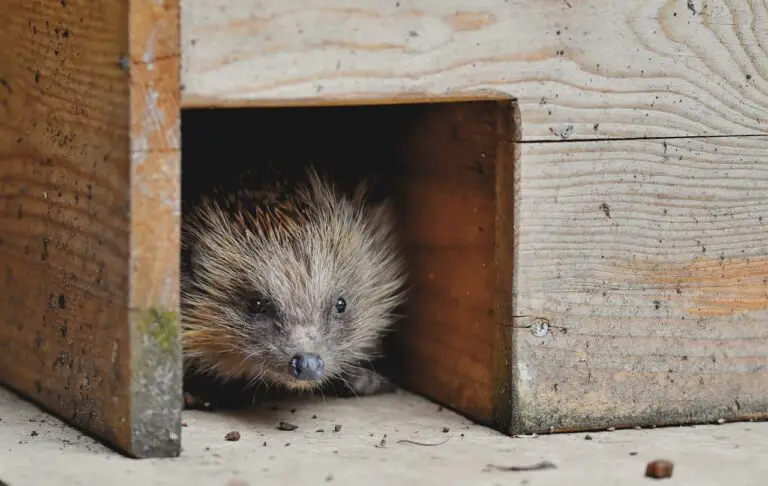The Ultimate Guide to Choosing the Right Exotic Pet
Exotic pets can be fascinating and fun, but they also come with their unique set of challenges.
Choosing the right exotic pet for you and your family requires careful consideration of many factors, such as lifestyle, personality, and budget.
This ultimate guide will help you make an informed decision and ensure that you and your exotic pet have a happy and healthy life together.
Types of Exotic Pets
There are many types of exotic pets to choose from, and each has its own unique needs and characteristics.
Some popular exotic pets include:
- Snakes
- Lizards
- Birds
- Monkeys
- Sugar Gliders
- Hedgehogs
- Ferrets
- Chinchillas
- Tarantulas
- Fish
Each type of exotic pet requires different levels of care, and some may be more suitable for certain lifestyles than others.
For example, if you work long hours, a pet that requires constant attention and socialization may not be the best choice.
Legal Considerations
Typically, you don’t need a special license to own an exotic pet.
Under the Animal Welfare Act, it is not necessary to obtain a license or register with the US Department of Agriculture if you are keeping an exotic animal as a pet.
Nonetheless, my advice is to make sure you understand the laws and regulations surrounding exotic pets in your area before you make a purchase.
Personal Considerations
Choosing the right exotic pet requires careful consideration of your lifestyle and personality. Some questions to consider include:
- How much time do you have to devote to your pet?
- Are you willing to provide the necessary training and socialization?
- Do you have any allergies or sensitivities to certain types of animals?
- Are you prepared to handle the challenges that come with owning an exotic pet?
It’s important to be honest with yourself about your capabilities and limitations when it comes to owning an exotic pet.
Health and Safety
Exotic pets can pose unique health and safety risks.
For example, some exotic pets may carry diseases that can be transmitted to humans, while others may be more prone to aggression.
Make sure you research the potential health and safety risks associated with the type of exotic pet you are interested in and take the necessary precautions to protect yourself and your family.
Environmental Considerations
Different types of exotic pets have different environmental needs. Some may require a specific type of habitat or temperature range, while others may need a lot of space to move around.
It’s important to research the specific environmental needs of the type of exotic pet you are interested in and make sure you can provide the necessary living conditions.
Feeding and Nutrition
Exotic pets require a specialized diet that may be different from the food you feed your typical pets.
It’s important to research the specific feeding and nutritional needs of the type of exotic pet you are interested in and make sure you can provide the necessary diet.
Training and Socialization
Exotic pets require training and socialization, just like any other pet.
However, the type of training and socialization needed may vary depending on the type of exotic pet.
Some exotic pets may require extensive training to ensure they are well-behaved and safe to be around, while others may be naturally well-behaved.
It’s important to research the training and socialization needs of the type of exotic pet you are interested in and make sure you are able to provide the necessary training and socialization.
Grooming and Maintenance
Exotic pets also require grooming and maintenance, which can vary depending on the type of pet.
Some exotic pets may require regular bathing or grooming, while others may require more specialized care, such as regular nail trimming or beak filing.
Make sure you research the grooming and maintenance needs of the type of exotic pet you are interested in and make sure you are able to provide the necessary care.
Cost of Ownership
Owning an exotic pet can be expensive, and it’s important to consider the cost of ownership before making a purchase.
Some factors to consider include:
- The cost of purchasing the pet
- The cost of supplies, such as cages, food, and bedding
- The cost of veterinary care
- The cost of training and socialization
- The cost of any permits or licenses required
Make sure you have a realistic budget in mind before bringing home an exotic pet.
Finding a Reputable Breeder or Rescue
When purchasing an exotic pet, it’s important to find a reputable breeder or rescue.
Look for breeders or rescues that have experience with the type of exotic pet you are interested in and that are willing to answer your questions and provide support after the purchase.
Avoid purchasing exotic pets from pet stores or online sources, as these may not provide the necessary information or support.
Bringing Your Exotic Pet Home
When bringing your exotic pet home, it’s important to provide a safe and comfortable environment.
Make sure you have the necessary supplies, such as a cage or enclosure, food, and bedding, and set up the environment before bringing the pet home.
Introduce the pet to its new environment slowly and monitor its behavior closely to ensure it is adjusting well.
Bonding with Your Exotic Pet
Building a bond with an exotic pet can take time and patience.
It’s important to spend time with your pet every day, providing socialization, training, and affection.
Each type of exotic pet may require different types of bonding, and it’s important to research the specific bonding needs of the type of pet you have.
Common Health Issues
Exotic pets may be more prone to certain health issues than typical pets, and it’s important to be aware of these issues and take the necessary precautions.
Some common health issues that may affect exotic pets such as birds, monkeys etc. include:
- Gastrointestinal Stasis – This one primarily affects rabbits as dental problems, illness, stress, or even dehydration may be to blame here.
- Overgrown teeth – To prevent overgrowth, rabbits’ teeth must be regularly filed down as they grow.
- Parrot fever – All birds in the parrot family are susceptible to contracting the highly contagious sickness known as parrot fever. Be alert for signs of inflammation, difficulty breathing, watery poop, eye infections, and lethargy.
- Feather disease and psittacine beak – This condition is also known as “bird AIDS” as it affects feathers and the psittacine beak. Even though it can happen to birds of any age, it is more frequently observed in young birds.
- Campylobacter – A bacterial disease that can be spread through contaminated food, water, or contact with infected animals, including exotic pets. Symptoms may include fever, diarrhea, and abdominal pain.
- Salmonella – A bacterial disease that can be spread through contaminated food, water, or contact with infected animals, including exotic pets. Symptoms may include diarrhea, fever, and abdominal cramps.
- Shigella – A bacterial disease that can be spread through contaminated food, water, or contact with infected animals, including exotic pets. Symptoms may include diarrhea, fever, and stomach cramps.
- Simian herpes B virus – A viral disease that is primarily found in macaque monkeys, but can be transmitted to humans through bites or scratches from infected animals. Symptoms in humans can range from mild flu-like symptoms to serious neurological damage.
- Tuberculosis – A bacterial disease that can be transmitted through contact with infected animals, including exotic pets. Symptoms may include cough, fever, and weight loss. In severe cases, the disease can lead to serious complications such as lung damage or meningitis.
Make sure you research the potential health issues associated with the type of exotic pet you have and seek veterinary care immediately if you notice any symptoms.
Conclusion
Choosing the right exotic pet requires careful consideration of many factors, including lifestyle, personality, and budget.
By researching the specific needs of the type of exotic pet you are interested in and taking the necessary precautions, you can ensure a happy and healthy life together.
FAQs
1. What are some popular types of exotic pets?
There are many different types of exotic pets to choose from, but some of the most popular include:
- Reptiles
- Birds
- Small mammals such as ferrets
- Sugar gliders
- Hedgehogs.
Other popular choices include primates, fish, and even some species of insects.
2. Are exotic pets legal in all states?
No, the legality of owning an exotic pet varies from state to state and even from city to city.
Some states have very strict regulations on which types of exotic pets can be owned, while others may have little to no restrictions.
It’s important to research the laws in your area before purchasing an exotic pet.
3. What are some potential health risks associated with owning an exotic pet?
Exotic pets may be more prone to certain health issues than typical pets, including parasitic infections, nutritional deficiencies, dental problems, respiratory problems, and behavioral issues.
It’s important to research the specific health risks associated with the type of exotic pet you are interested in and take the necessary precautions to prevent and treat any health issues.
4. How can I ensure that I am providing the necessary care for my exotic pet?
Providing proper care for an exotic pet requires research, commitment, and often specialized knowledge.
Make sure you research the specific needs of the type of exotic pet you are interested in, including diet, housing, socialization, and veterinary care.
It’s also important to establish a relationship with a veterinarian who has experience with exotic pets.
5. Can exotic pets be trained and socialized like typical pets?
Yes, many exotic pets can be trained and socialized like typical pets, but the type and amount of training and socialization needed may vary depending on the type of exotic pet.
Some exotic pets may require extensive training to ensure they are well-behaved and safe to be around, while others may be naturally well-behaved.
It’s important to research the training and socialization needs of the type of exotic pet you are interested in and make sure you are able to provide the necessary training and socialization.
Peter Stones is the founder of Exotic Pets Place, the leading online resource for exotic pet care information.
With over 10 years of hands-on exotic pet ownership experience, he is deeply passionate about sharing his expertise to help others properly care for their unusual pets.
When he's not writing extensively researched articles or connecting with fellow exotic pet enthusiasts worldwide, you can find Peter at home tending to his own beloved menagerie of exotic animals.







